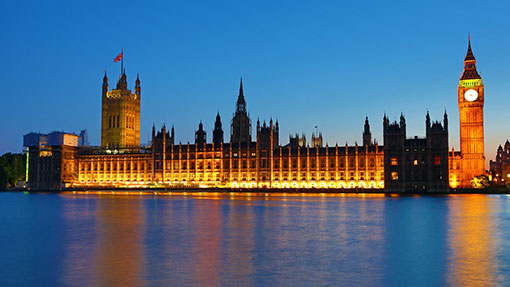Defra urged to stem food self-sufficiency decline

MPs have urged Defra to stem the UK’s declining self-sufficiency in food – warning that complacency poses a “genuine risk” to the country’s food security.
A report on the food production and supply dimensions of food security was launched by the Environment, Food and Rural Affairs Committee on Tuesday (1 July).
Extreme weather and increased demand for foodstuffs from emerging economies such as China needed Defra leadership to guarantee the UK’s long-term food security, it said.
See also: Farmer-led research crucial for food security
“Complacency is a genuine risk to future UK food security,” said committee chairman Anne McIntosh.
“If we want our food production and supply systems to be secure, government and food producers must plan to meet the impacts of climate change, population growth and increasing global demand for food.”
Mrs McIntosh called for clearer lines of UK governmental responsibility. At least three departments are now responsible for food security — Defra, the Department for Business, Innovation and Skills and the Department of Energy and Climate Change, she said.
“To ensure coherent planning and action, overall strategy must be led by Defra, which must ensure a robust approach right across Whitehall.”
The food security report supports the idea of “sustainable intensification” – the concept of producing more food with fewer resources.
Noting that UK wheat yields have remained static for more than 15 years, it and calls on Defra to stem decline in UK self-sufficiency and deliver more resilience in the UK food system.
The UK is 68% self-sufficient in foods which can be produced at home, but this key indicator has declined steadily over the past 20 years, from 87%.
The biggest long-term challenge to food production systems is the impact of extreme weather events resulting from climate change, the document said.
The report called for:
- Supermarkets to shorten supply chains to reduce threats of disruption
- UK farmers to extend seasonal production of fresh fruit and vegetables in coordination with the Agricultural and Horticultural Development Board, local and central government
- Government to reduce dependence on imported soya bean for animal feed, as increased demand for protein from emerging economies threatens supply lines
- Government to produce a detailed emissions reduction plan for the UK agricultural sector.
Mrs McIntosh said: “If we are to curb emissions and adjust to climate change, we need a significant shift in how the UK produces food.”
“If we want our food production and supply systems to be secure, government and food producers must plan to meet the impacts of climate change, population growth and increasing global demand for food.”
Anne McIntosh, EFRA committee chairman
This included more research to identify ways of curbing the 49% of farm-related emissions contributed by livestock production.
Farmers needed better longer-term weather forecasts and more resilient production systems to be able to cope with severe weather events such as last winter’s floods.
The committee also calls on the government to lead a public debate to counter food safety fears among consumers about GM foods.
Ministers should ensure a more evidence-based approach to EU licensing of GM crops, it said.
Responding to the report, Julian Little, chairman of the Agricultural Biotechnology Council (ABC), said GM technology had a role to play in addressing food security concerns.
“As noted by the committee, GM foods are widely consumed around the world and more than three trillion meals containing GM have been consumed with ‘no known or documented ill-effects’.
Dr Little added: “Biotech crops are among the most extensively tested foods in the history of food safety, and there is a substantial weight of evidence demonstrating their safety.
To improve UK and EU food security, the ABC said the regulatory framework for GM crops in the EU needs to be more rigorously applied.
GM products should be put to vote by the European Commission without delay, said Dr Little, as prescribed in EU law, with science-based decision-making at the heart of the process.
“If the approvals system is not more effectively applied and continues to malfunction, UK food production will remain at a competitive disadvantage compared with other non-EU countries.
“Restrictions on imports from countries that grow GM will also continue to drive up the costs of feeding UK livestock, with further upward pressure on food prices.”
